Meet ‘the mindful heart doctor’
Cardiologist Jonathan Fisher is tackling physician burnout with mindfulness and meditation
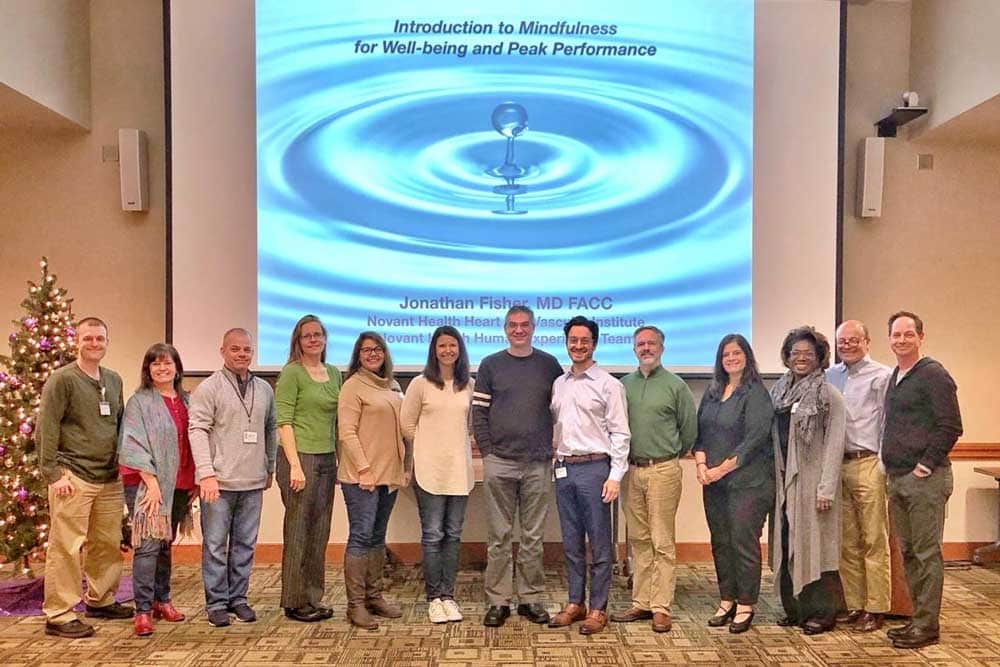
Well before COVID-19 hit, a different kind of epidemic was impacting physicians across the country — a rampant and, at times, debilitating state of burnout.
Nearly 44% of physicians exhibited at least one symptom of burnout in 2017 — a noticeable decrease from 2014, when rates hovered around 54%. Those were the results published in a triennial study of physicians across the U.S. as reported by study’s researchers from the American Medical Association, the Mayo Clinic and Stanford University School of Medicine.
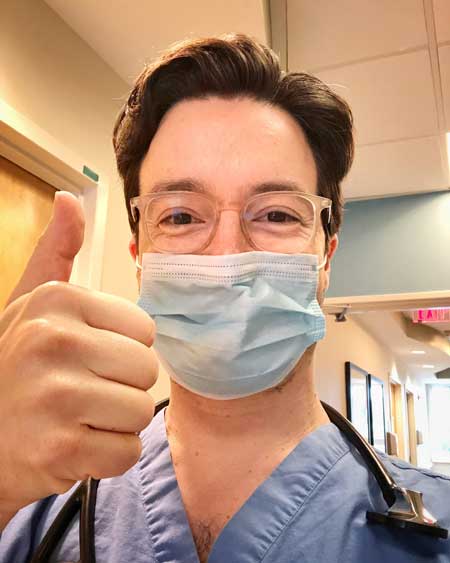
That reprieve was unfortunately short-lived. With the COVID-19 pandemic now pressing down on our public health system, physician burnout is once again on the rise. A recent Medscape survey found almost two-thirds of U.S. physicians said the pandemic had intensified their sense of burnout, and many of them lack healthy ways to manage the stress. Roughly a third said they’d resorted to eating more. About 20% were drinking more alcohol, and 2% said they were taking more prescription stimulants and other medications.
Those statistics don’t surprise Jonathan Fisher, MD, a cardiologist at Novant Health Huntersville Medical Center. After his own bout with burnout more than a decade ago, he has dedicated much of his career to combatting it among his peers.
“Beginning in medical school, there were times where I would be crying in the stairwell after a patient would die, and no one was there to talk to me about the inner life of a doctor — about the existential life and death issues we deal with. And over a decade, these unprocessed feelings started to build up inside me and create a sense of exhaustion, isolation and confusion about whether these feelings were normal or not,” Fisher said.
“I started feeling anxious and depressed, and in our medical culture, that’s traditionally seen as a sign of weakness,” he said. “It creates a stigma around sharing that we are not superheroes. We are human beings, and if we could be more human, we could be better doctors than we are right now.”
One could argue Fisher was born to be a doctor. His father was a family physician who practiced out of their home. His mother held a Ph.D. in biophysics (and eventually became a nuclear physicist), and he is one of seven siblings, all of whom are now doctors. And yet here he was, well-established in his medical career and teetering on the brink of burnout.
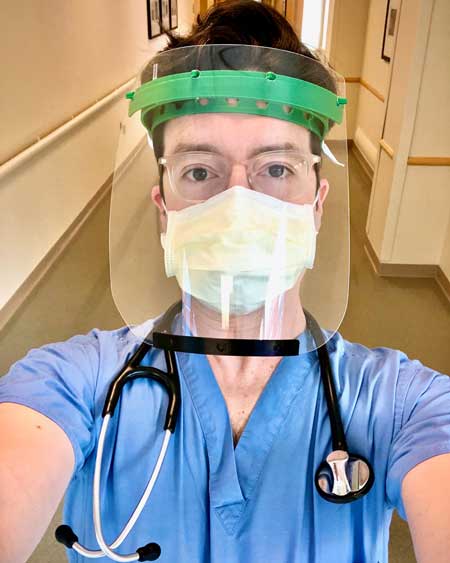
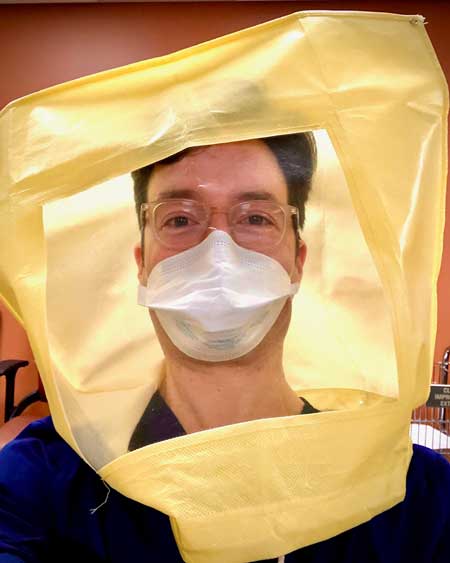
“I was ready to leave medicine. This dream had chewed me up and spit me out,” Fisher said. “I was falling apart internally. There was no break.”
In addition to his professional burnout, Fisher’s sister — his best friend — was diagnosed with a brain tumor. He had a young family and patients who were relying on him for treatment and care. His stress was mounting. But rather than abandon medicine, Fisher asked for help and, in the process, found his way to the practices and tools that would change his life and the lives of thousands of other healthcare professionals.
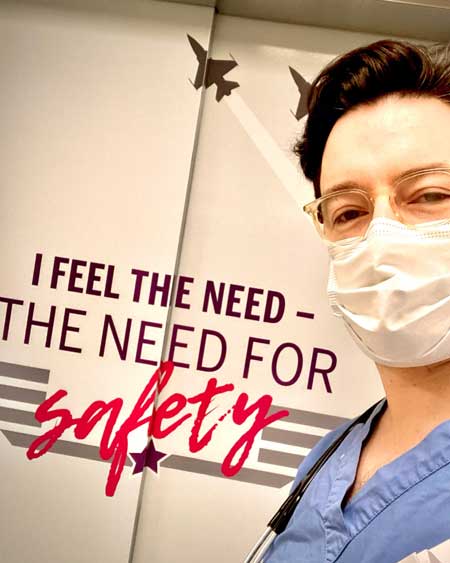
“Over a decade ago, I decided I would make it my life’s work to explore this hidden part of medicine, which is this connection between how our emotional heart affects our physical hearts and our physical health — and how the delivery of holistic care can improve the health of everyone,” Fisher said.
His journey began with the discovery of positive psychology, or the study of how we can be happy.
“That introduced me to the practice of mindfulness and meditation, which reduces anxiety and burnout. Once I read that, I said, ‘I don’t care how hard it is. I’m in,’” Fisher recalled.
He started small, committing to meditate for seven minutes every day for a week. It wasn’t easy at first — he could barely sit still for 30 seconds, let alone seven minutes. But by the end of the week, he noticed subtle changes that convinced him to stick it out for a month. Now, Fisher estimates he’s spent thousands of hours meditating, a practice that has taken him to monasteries and silent retreats and has transformed his practice of medicine into a holistic approach that incorporates the emotional, mental and physical aspects of health.
“Stress literally lives in the mind and body. Many diseases are caused by unprocessed sadness, anger and resentment, and this journey awoke in me this sense that my mind and body are really connected, and I’d been ignoring so many signals,” he said.
Fisher’s personal transformation was so profound he felt compelled to share what he’d learned. In 2012, he gave a medicine grand rounds presentation on mindfulness and the heart. He remembers getting some strange looks, but there were also a few physicians who approached him afterward to ask how they could learn more.
“That was the beginning of my sharing,” Fisher said. “The ancient Greeks said, if you want to change the world, you start with yourself and you make changes in small circles around you. That’s what I did over the past 10 years.”
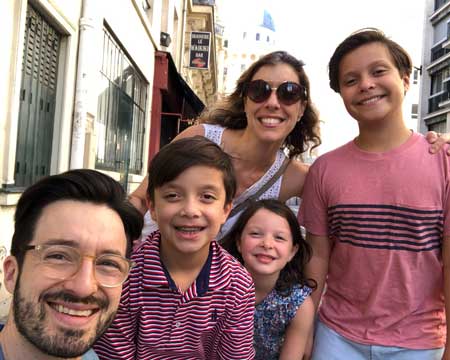
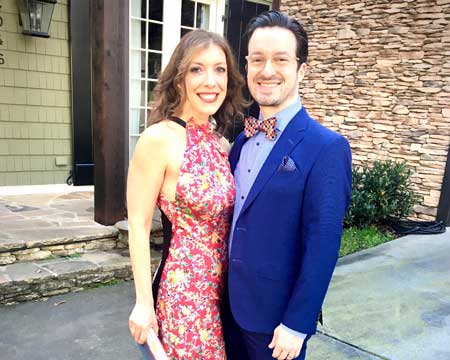
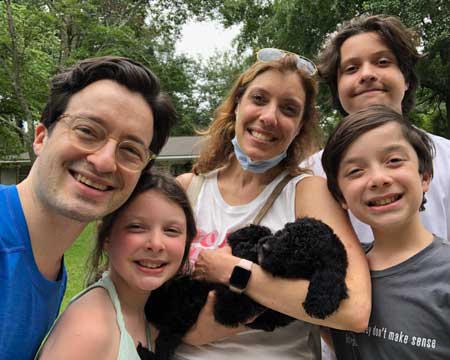
After his own revelation, Fisher imparted mindfulness and meditation techniques to his family and the nurses and staff in his cardiology clinic, where he led a monthly stress management class. When his manager got wind of his work, Fisher was asked to create a program to serve the entire staff. Soon, he was building programs for regional managers and division leaders of cardiology and leading a training program on mindful leadership for Novant Health executives. Then, Tom Jenike, MD, chief well-being officer at Novant Health, invited him to begin spending 40% of his working hours on Novant Health’s organizational resilience and well-being team.
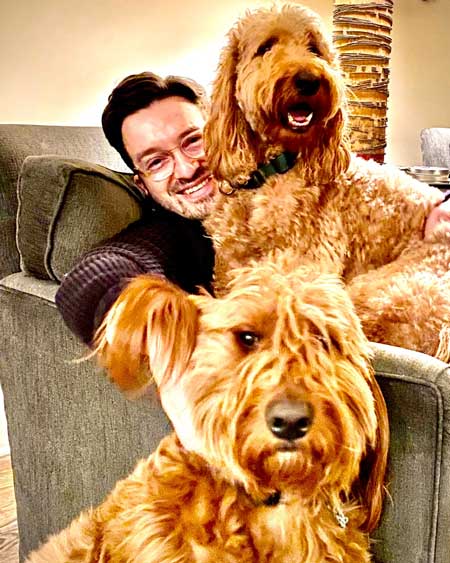
“Over the past eight years, I’ve led over 30 programs for more than 2,000 people throughout Novant Health, and there’s plenty more to come,” Fisher said. “We have even designed Novant Health’s first research protocol for exploring mind-body practices and their impact on surgeons and their teams. Eventually, we’ll be able to look at how this impacts patients and their outcomes.”
Fisher has also found a global community online, through the information and insight he has shared through LinkedIn, where he calls himself “the mindful heart doctor.” That community prompted him to partner with a friend at the University of Southern California and launch an online group called Ending Physician Burnout.
“Within a month, we have attracted almost 300 members, including CEOs and chief medical officers at major hospital systems around the world. We’re going to work on creating summits to share practices on how we can end burnout among physicians and nurses. We’re hosting the first one in February,” Fisher said.
Fisher’s work is more important now than ever before. He has heard countless stories of physicians leaving medicine, or worse, because of everything they’ve endured this year, and he worries those stories will increase.
“The level of human service and self-sacrifice has been beyond what any of us has seen in our lifetime, and the need to support those who are suffering and currently on the edge is only going to escalate in the coming year,” Fisher said. “As a society, we need to recognize that, if we do not pause for a moment to take care of our caregivers, they may not be there for us when we need them.”
2020 has challenged Fisher in new ways, as well. His wife is a physician, too, and they have three children at home.
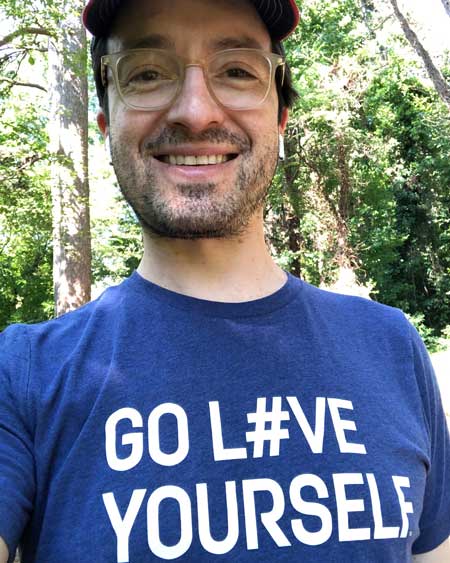
“We have the fear of getting sick and dying, the fear of transmitting it to any of our patients, and then the fear of transmitting it to our children,” he said.
To hedge against the risks, they’ve taken off their wedding rings to ensure they can scrub their hands fully every time they wash. They only wear scrubs to work, and each night when they get home, everything they’ve worn throughout the day goes straight into the washing machine. They go straight to the shower.
“On top of that, there’s been this isolation. I want to hug my friends. I want to see my dad who’s 94. I want to see my brothers and sisters. I feel the loss of all those things on a tremendous level,” Fisher said.
And while he has the tools to combat those feelings, they aren’t always easy to use.
“I have often forgotten my own practices. I used to be able to sit and meditate for a week, and now I have trouble sitting for five minutes,” Fisher said. “I’m not perfect. I’m not some kind of a guru. I’m just a human being who knows how hard it can be to do these things and who also knows these skills work.”
Stay connected through giving.
One of the ways Fisher likes to stay connected is through giving. “We know that, when we give to our healthcare system, it’s helping the connection between patients and the healthcare provider.” You can do your part, with a contribution to a Novant Health foundation. Join us and make your gift today.